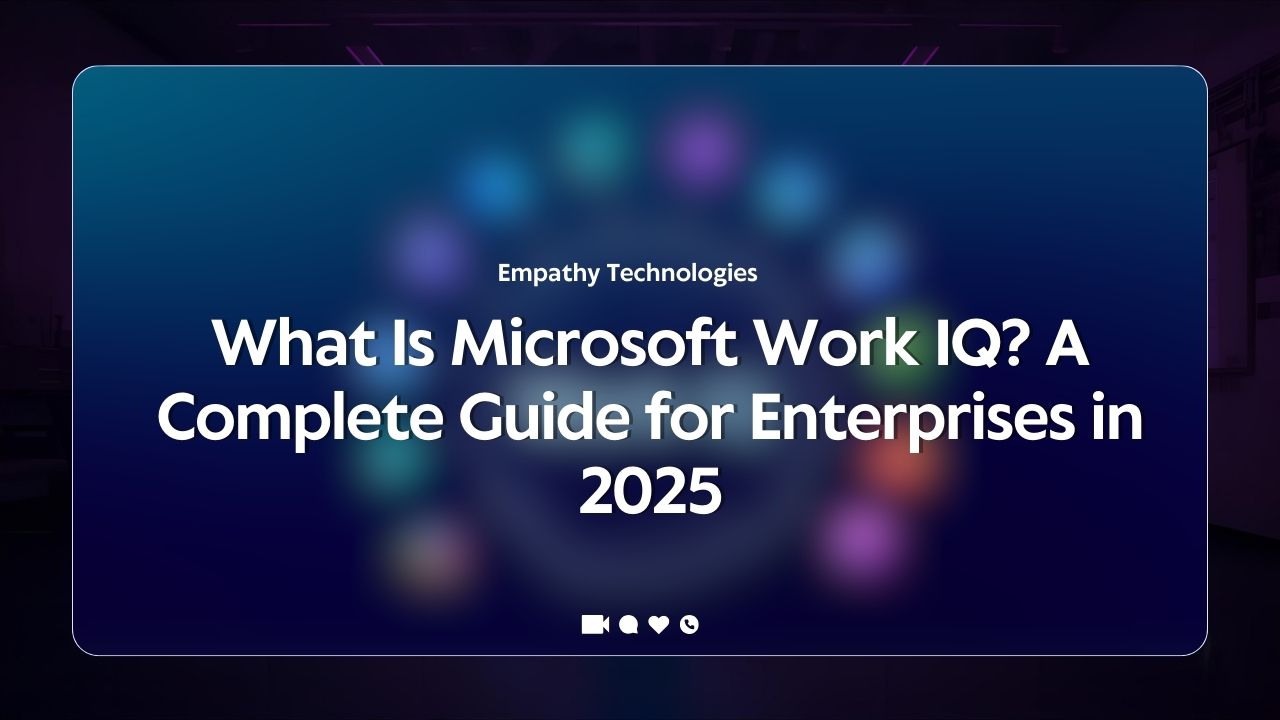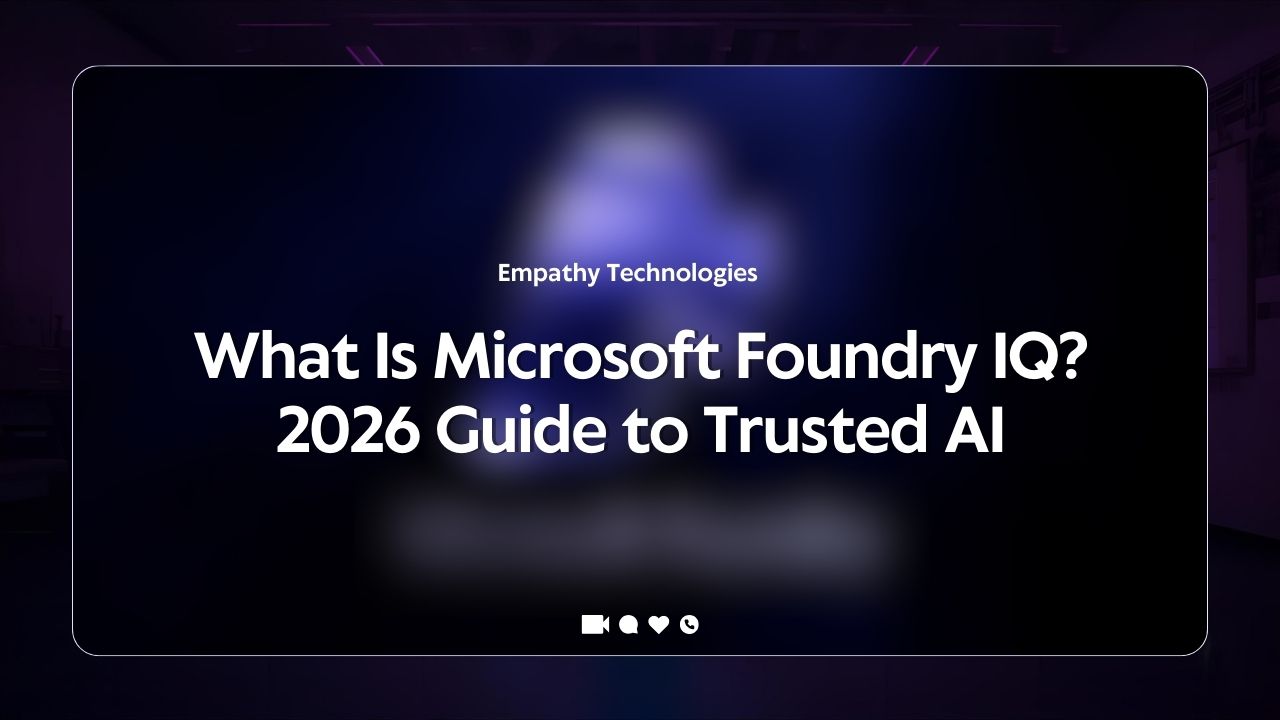
Azure AI vs AWS AI – Which Cloud AI Platform Wins in 2025?
By 2025, the cloud AI market will reach a staggering $1.3 trillion (Statista). AI is no longer just a buzzword; it’s transforming industries by boosting efficiency, improving customer experience, and opening new revenue streams.
However, as businesses move to adopt AI-powered solutions, one critical question arises: Is Azure AI or AWS AI? Which platform can help you stay ahead in the competitive landscape?
Both Microsoft Azure and Amazon Web Services (AWS) are giants in the cloud AI space, each offering distinct advantages.
This blog dives deep into the strengths of both platforms, including their roadmap for 2025, to help you decide which solution best aligns with your needs.
An Overview of Azure AI and AWS AI
Azure AI
Microsoft Azure AI has built a reputation for its comprehensive set of solutions tailored to enterprise needs:
Key Services:
Cognitive Services such as Vision, Speech, and Language APIs for robust AI integration.
Azure Machine Learning for model building and deployment.
Bot Framework for building intelligent conversational agents.
Integrations:
Exceptional connectivity with Microsoft tools like Power BI and Dynamics 365.
Perfect for organizations already embedded in the Microsoft ecosystem.
Recent Updates (2023–2024):
Azure OpenAI Service added enhanced generative AI capabilities with robust GPT integrations.
New hybrid and edge AI solutions were launched, such as Azure Percept, targeting edge devices.
Check Out: What’s New in Azure OpenAI Feb 2025
Roadmap for 2025:
Microsoft plans to scale its industry-specific AI solutions (e.g., healthcare, finance), focus on inclusivity with low-code solutions, and improve environmental sustainability across its AI platforms.
AWS AI
Amazon Web Services dominates the AI space with its vast infrastructure and innovative offerings:
Core Offerings:
Amazon SageMaker for comprehensive machine learning workflows.
Vision services such as Rekognition and language tools like Amazon Lex.
The new generative AI service, Amazon Bedrock, simplifies working with large language models (LLMs).
Synergy with AWS Infrastructure:
AWS seamlessly integrates with its cloud ecosystem, including S3, Lambda, and Kinesis, making it ideal for businesses already leveraging AWS services.
Innovations and Predictions:
AWS recently introduced CodeWhisperer, a powerful AI assistant for developers.
Strengthens serverless AI capabilities with solutions like AWS Panorama for edge computing.
Roadmap for 2025:
Expect considerable advancements in LLMs, AI-driven customer personalization, low-latency edge AI solutions, and compliance-focused AI tools.
Key Comparison Criteria

To evaluate Azure AI and AWS AI, we benchmark them in five key areas:
1. Performance & Scalability
- Azure offers edge-friendly solutions with Azure Percept, perfect for businesses with hybrid and multi-cloud setups.
- AWS boasts unmatched scalability with its serverless models and specialized processors like Inferentia.
Verdict:
AWS edges ahead in scalability, while Azure remains a strong contender for hybrid cloud capabilities.
2. Pricing Models
Both platforms offer a pay-as-you-go pricing model but with hidden costs around data egress and extensive training times.
Azure:
Best for Microsoft-centric organizations, rewards hybrid cloud users through Azure Hybrid Benefit.
AWS:
More cost-efficient with varied options, including Reserved Instances and Spot Instances for unused capacity.
Verdict:
AWS offers greater flexibility, but Azure may hold advantages if your enterprise already operates within the Microsoft ecosystem.
3. Ease of Use
- Azure Machine Learning Studio simplifies the ML lifecycle for low-code users.
- AWS SageMaker Canvas offers AutoML features and a smoother developer experience, especially for Python users.
Verdict:
While both platforms cater to developers and citizen data scientists, Azure ML Studio’s intuitive interface may appeal to non-technical teams.
4. Security & Compliance
Data protection is critical for AI adoption, especially in regulated industries:
Azure:
Superior for industries with strict data governance needs due to its focus on compliance standards like GDPR and HIPAA.
AWS:
Excels with a globally distributed security framework, featuring tools like AWS Shield and Macie for advanced threat detection.
Verdict:
Azure leads industries requiring high compliance, while AWS suits organizations prioritizing global scalability.
5. Ecosystem & Integration
Hybrid and multi-cloud support is a future necessity:
Azure’s Integration:
Effortless compatibility with third-party tools such as Snowflake and Databricks, alongside strong ties to Microsoft.
AWS:
Offers broad open-source compatibility for tools like Kubernetes and TensorFlow.
Verdict:
Selection often depends on an organization’s cloud strategy—if flexibility is your goal, AWS wins.
Azure AI vs AWS AI – Head-to-Head Service Comparison
| Feature | Azure AI | AWS AI |
| Core AI/ML Services | Cognitive Services, Azure ML Studio | SageMaker, Rekognition, Bedrock |
| Edge AI | Azure Percept | AWS Panorama |
| Generative AI | Azure OpenAI | Amazon Bedrock (LLMs like Titan) |
| Industry Use Cases | Healthcare Bots, Retail Analytics | Personalisation Engines (AWS Personalize) |
| Best For | Microsoft Ecosystem, Hybrid Cloud | Large-Scale, Flexibility |
Future Trends for Cloud AI in 2025
1. Democratizing AI
Low-code/no-code tools are expected to take the forefront, empowering non-developers to create AI-driven applications. Azure’s ML Studio and AWS’s Canvas will continue to innovate in this space.
2. Edge AI
Real-time AI at the edge is critical—a space where Azure Percept and AWS Panorama are fierce competitors.
3. Generative AI
With the rise of LLMs powering content generation, Azure OpenAI GPT models and AWS Bedrock continue to lead their respective lines of innovation.
4. Sustainable AI
Expect both platforms to scale their sustainability initiatives—Azure AI already emphasizes carbon-neutral workloads, while AWS funds renewable resources to support greener AI operations.
Which Should You Choose in 2025?
Choose Azure AI If…:
You rely on Microsoft products (Teams, Dynamics 365).
Your organization requires a hybrid cloud and stringent compliance.
Choose AWS AI If…:
Large-scale scalability is a critical business need.
You’re looking for flexible, cutting-edge innovations in AI/ML.
Ultimately, the choice depends on your organization’s goals, resources, and existing infrastructure.
Bringing Clarity to Complex Decisions
Azure AI and AWS AI are both excellent platforms with unique strengths. The key to making the right decision lies in understanding your specific business needs. Evaluate your cloud strategy carefully—and you’ll set the stage for AI success in 2025.
FAQs on Azure AI vs AWS AI
Is Azure AI cheaper than AWS AI?
Both platforms have pay-as-you-go models, but AWS offers more flexible cost-saving options, such as Reserved Instances.
Which offers better NLP tools—AWS or Azure?
Azure’s Cognitive Services excels in sentiment analysis, while AWS Lex leads with speech-driven chatbots.
Can I migrate AI models between Azure and AWS?
Yes, but interoperability requires planning due to different APIs and architectures.









